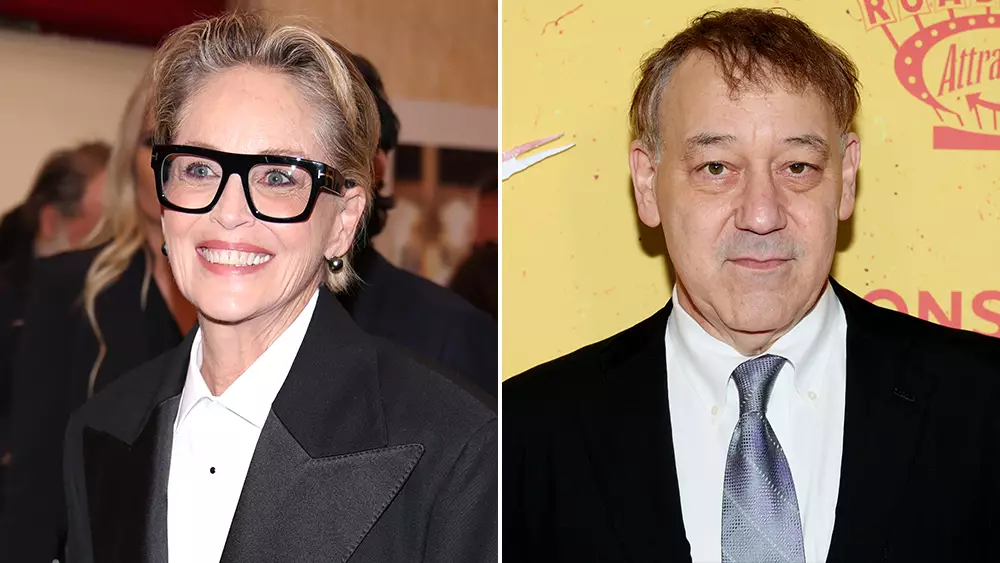In the somewhat insular world of cinema, the narratives that emerge from behind the camera often reflect not only the artistic labor involved but also the cultural and social dynamics that permeate the industry. Sharon Stone, an actress imbued with both charisma and talent, recently engaged in a reflective Q&A session at the Torino Film Festival concerning her 1995 film, The Quick and the Dead. Her candid remarks about director Sam Raimi and her experiences highlight the intricate interplay of loyalty within professional relationships and the broader issues of sexism that women face in Hollywood.
Contrasting Collaborations: Stone’s Dual Experiences
Stone’s experience working alongside Sam Raimi stands in stark contrast to her fruitful collaborations with director Martin Scorsese. While Raimi is recognized for his later successes—and the transition from B-movies to A-list films—Stone’s experience with him left her feeling disillusioned. She expressed, “Sam was a kid and he doesn’t have loyalty, he doesn’t have family.” This comment encapsulates a critical dynamic: the absence of professional loyalty can lead to the erosion of relationships, often curtailing potential avenues for future collaborations. In a creative field where relationships can propel careers forward, loyalty—or the lack thereof—can profoundly impact an artist’s trajectory.
In comparison, Stone’s respect for Scorsese is underscored by his nurturing professional ethos. With Scorsese, she found not only a collaborator but a sustained ally, stating, “Marty, because I worked so hard and because I admired him so much, our relationship continues to today; there is depth.” This illustrates how shared values and mutual recognition between collaborators can yield enduring professional relationships, significantly influencing an artist’s career.
Despite The Quick and the Dead being labeled a commercial disappointment at the time of its release, it has since transitioned into the realm of cult classic cinema. The film, featuring Stone as a vengeful gunslinger in a town rife with malevolence, offered a nuanced portrayal of female empowerment amidst a male-dominated genre. Its gradual rise in popularity raises questions about the nature of cinematic merit and how audience perceptions evolve over time. What was once deemed a failure now finds relevance, particularly in discussions around female representation and narrative agency in Westerns.
Stone’s role in this film was pivotal not just due to her performance but also her contributions as a producer and casting agent. It is particularly noteworthy that she highlighted her influence in casting future stars like Russell Crowe and Leonardo DiCaprio. This speaks volumes about the often-overlooked power that women can wield when afforded the opportunity to lead creative endeavors.
In her reflections, Stone shed light on the formidable barriers women encounter in Hollywood. After her experience producing The Quick and the Dead, her aspiration to return to directing was met with significant resistance. “The resistance to women working… was so great,” Stone recalled, linking her inability to secure directing roles to the pervasive sexism that haunted the industry at the time. Her sentiment echoes the struggles many women continue to face in an industry still grappling with gender biases. This challenging environment often precludes talented individuals from taking the helm in directing despite their proven capabilities.
Stone’s decision to pivot towards casting instead of directing serves to highlight a painful reality: the need to reorient one’s career in the face of systemic barriers rather than pursuing a passion that remains frustratingly out of reach. The lack of opportunities for women to step into directing roles not only stifles individual artistic aspirations but also deprives the cinema landscape of diverse narratives and perspectives that are inherently enriched by varied experiences.
Sharon Stone’s candid reflections at the Torino Film Festival paint a picture of an evolving industry grappling with loyalty, gender dynamics, and creative power. Her comments on both Raimi and Scorsese bring forth the importance of interpersonal relationships in show business, while her discussion of the barriers women face in directing underscores the need for systemic change. As the film industry continues to strive for diversity and inclusion, it is essential to recognize and address the lingering issues that have historically marginalized talented women. Moving forward, it is imperative that industry stakeholders nurture loyalty and champion female voices, ensuring that such stifling barriers become relics of the past. The evolution of cinema depends on it.

